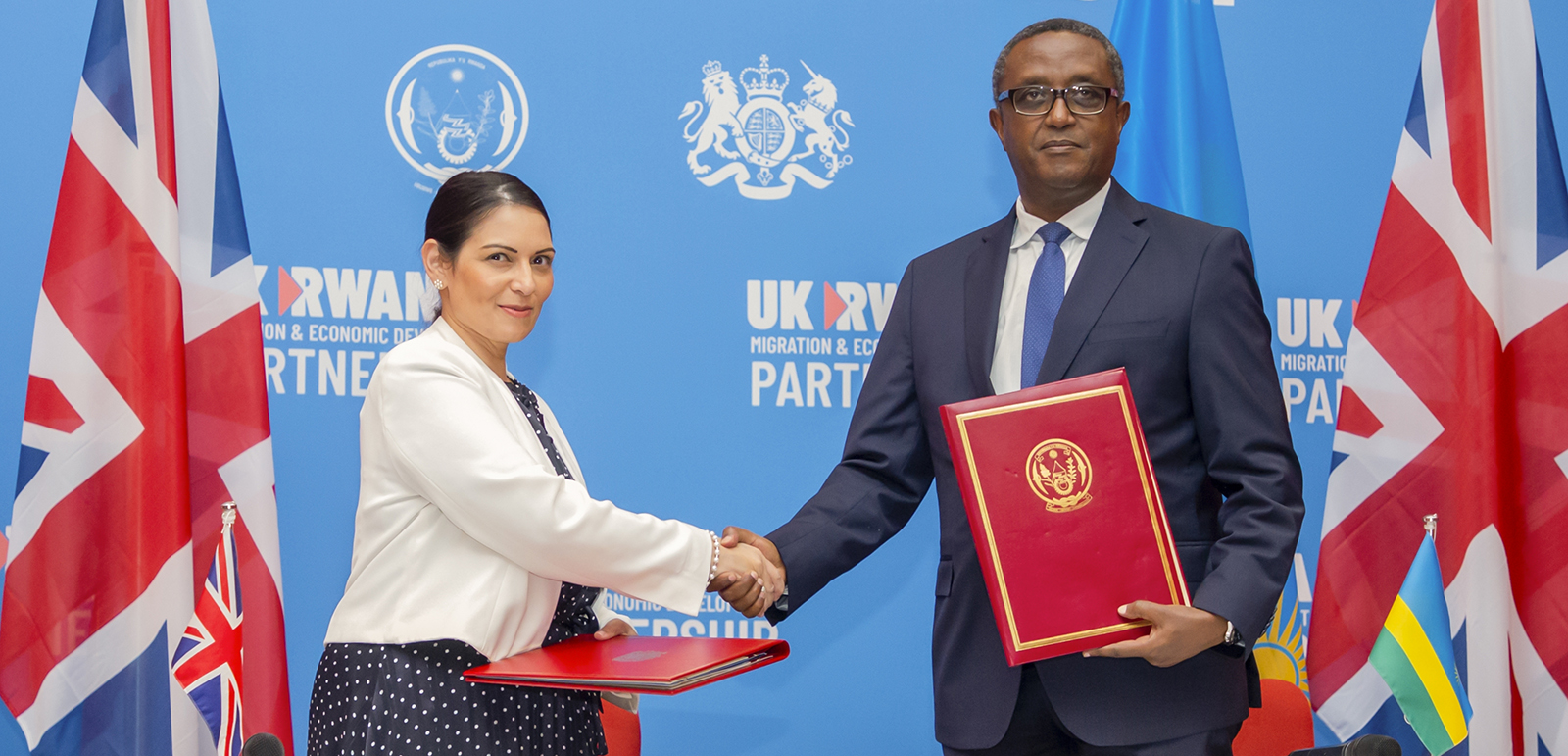A hostile, demonising approach to human rights
In the face of the government’s Rwanda policy, we need to build a fairer and more united society
–

The passing of the UK’s Nationality and Borders Act has met with disbelief and outrage from many observers over the past few weeks. The legislation, which includes provisions for refugees and migrants arriving on British shores via irregular routes to be sent to Rwanda for processing and resettlement, is the latest example of a deeply hostile and regressive approach to human rights and border policy from the present government.
The new Act would allow for people, often arriving in small boats crossing the Channel, regardless of their country of origin, to no longer have asylum applications assessed in the UK. Instead, they will be deported 4,000 miles to Rwanda, where Priti Patel’s Home Office says they will have the chance to build a new life.
In return for effectively becoming an offshore staging post that allows Britain to circumvent international conventions on the rights of refugees, Rwanda will reportedly receive an initial £120 million in British taxpayers’ money as part of an “economic transformation and integration fund”.
The policy is a stark reminder of the lack of value placed on the lives of people of colour. Many of them are Muslims, fleeing the conflict and economic ruin created by factors, including the foreign policy decisions of Britain and its allies during the so-called “war on terror”, climate change and economic insecurity. According to the United Nations, 84 million people have been displaced worldwide since 2021, the highest number recorded in the organisation’s history.
Official rhetoric behind the new Rwanda approach contrasts deeply with the British government’s hastily introduced Ukrainian refugee policy which, although flawed, is underpinned by a narrative of compassion and understanding rather than the kind of mistrust and simplistic demonisation of refugees and migrants from further afield. What it’s also failing to do is create safety and refuge for Ukrainians fleeing war.
The contradictions between the two policies are loud and clear. The government, in some cases supported by sympathetic media outlets, risks promoting a hierarchy of refugees where the needs of displaced white Europeans sit above those of less relatable people from places such as Afghanistan and Syria.
When Afghans and Syrians, alongside other Black and Brown refugees and migrants, are trying to reach our shores, the story is often framed by certain sections of the media as the “European migrant crisis”. That narrative fails to acknowledge that the vast majority of the world’s refugees remain outside Europe, clinging to life and dignity in often unsafe places close to the countries they are fleeing.
‘Some of the most economically challenged countries in the world have taken in the largest numbers of refugees’
Pakistan has hosted 1.5 million Afghans since 2020, alone, according to the United Nations High Commission for Refugees. Iran is home to one of the largest refugee populations in the world, with 780,000 documented Afghans and an estimated 2 million more without papers. The UK committed to hosting up to 20,000 Afghans fleeing the recent Taliban takeover, Belgium 8,900 and Germany 181,100.
The prelude to and the aftermath of Brexit has catalysed an escalation of rightwing rhetoric around national sovereignty and “British values”. What began as an argument over limiting freedom of movement within Europe to protect UK jobs soon mutated into apocalyptic predictions about an invading “swarm” of migrants crossing the Mediterranean towards the UK.
A widespread collapse of public confidence in globalisation, supranational institutions and markets has coincided with increased nationalism not just in the UK but also across Europe. The resulting political and social discourse relies heavily on the identification and demonisation of people who can be viewed as “other”. These manufactured fears are, however, a distraction from far more pressing issues, including wage stagnation and a cost of living crisis that is threatening to destroy millions of lives across the country.
The only way to change this is through anti-racist action and the building of transnational and global solidarity. In the UK, this collective project needs to be backed up by an education programme that teaches an honest account of British history, including the ongoing legacy of empire.
It is only by harking back to the country’s imperial past that this government can stir up resentment over what it believes to be Britain’s diminished status in the world and assert the need to “take back control” with divisive initiatives like the Rwanda policy.
So, what can British Muslims and everyone else do in the face of such policies? We need to hold our nerve and create a discourse where all people are valued and recognised. We also also need to commit to building multiracial class solidarity in our neighbourhoods, places of work and, most crucially, our schools.
As the American poet Audre Lorde wrote: “We are the hyphenated people of the diaspora whose self-defined identities are no longer shameful secrets in the countries of our origin, but rather declarations of strength and solidarity. We are an increasingly united front from which the world has not yet heard.”
Topics
Get the Hyphen weekly
Subscribe to Hyphen’s weekly round-up for insightful reportage, commentary and the latest arts and lifestyle coverage, from across the UK and Europe
This form may not be visible due to adblockers, or JavaScript not being enabled.